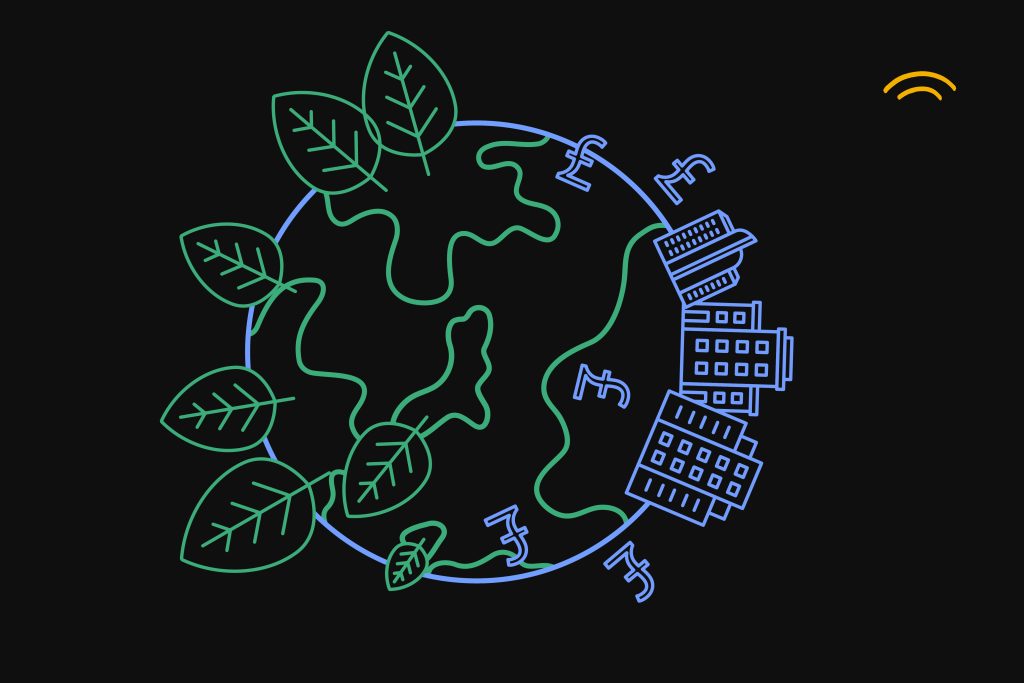
Flexible, durable, high-quality, and low-cost: in many ways, plastics are a dream material. Unfortunately they are also a toxic, polluting environmental nightmare.
That’s why more and more companies are looking for alternative, environmentally friendly materials to replace plastic components, packaging, and single-use items.
Let’s take a look at the problems, the solutions, and talk about how we can help you move towards a plastic-free future for your business.
What are plastics and how do we use them?
The word plastics covers a range of materials that are based on polymers. The majority of plastics are made from fossil fuels, combined with various additives, like stabilisers, colourants, and flame retardants.
Plastics are used extensively in packaging, construction, medical devices, cars, furniture, toys and more. Estimates suggest that 9.2 billion metric tons of plastic were produced between 1950 and 2017, and that global production will reach over 1.1 billion tons per year by 2050.
Because of their many and varied applications we’ve come to rely on plastics, but their widespread use comes with environmental, social and economic impacts.
Environmental impacts
The UN Environment Program is currently drawing up a legally binding instrument on plastic pollution. In case you don’t have time to read their 69-page document, it boils down to this: plastic pollution already represents a serious environmental problem at a global scale, and it’s getting worse.
Because 99% of plastics are derived from fossil fuels, they contribute to climate change at every stage of their lifecycle, from extraction to end of life. Current projections estimate that plastic production and incineration will account for 10-13% of the global annual carbon budget by 2050.
Plastic pollution also causes biodiversity loss. Seven hundred species — from tiny zooplankton, to fish, birds and the largest whales — are harmed by entanglement in or ingestion of plastic. We’ve even discovered a new disease, named plasticosis, which occurs when seabirds ingest small pieces of plastic that inflames and scars their digestive tract, affecting their digestion, growth and survival.
As well as harming animals, plastic pollution also impacts human health and communities.
Social and economic impacts
In their Zero Waste Policy Roadmap For a Plastic-Free Future the National Caucus of Environmental legislators describes plastic pollution as a “global crisis”, noting that “single-use plastics are the most pervasive plastic pollutants that contain hazardous substances and that slowly break down into smaller particles that stay in the environment.”
There is growing evidence of widespread human ingestion of plastic from contaminated food and water, particularly microplastics. Although toxicological risks are poorly understood, toxic chemicals — primarily in the form of the additives mentioned above — may bio-accumulate within body tissue.
Bearing the brunt of this plastic-related pollution are low-income communities and communities of colour based near facilities that are part of the plastics life cycle: oil refineries, chemical factories, plastic manufacturing plants, and incinerators.
There can also be costly economic consequences to plastic pollution. An estimated $622 million is lost every year in the Asia-Pacific region alone due to waste and clean-up costs, affecting the livelihoods of communities reliant on tourism.
How are we addressing these plastic-related problems?
Governments, citizens, and businesses are all taking steps towards a future that’s free of harmful plastic waste.
The Global Plastics Agreement negotiated by the UN Environment Assembly highlights the need to foster the sustainable production and consumption of plastics across their full lifecycle, from product design to environmentally sound waste management.
Citizens are also taking action, with grassroots initiatives like the student-run Sri Lankan ZeroPlastic Global Movement. This collective operates in 130 countries, raising awareness, cleaning up the existing problems and influencing policymakers.
Businesses too are working together to improve the situation. The Alliance to End Plastic Waste is an association of over 90 businesses that are testing and accelerating solutions to improve the collection, sorting, processing, and recycling of plastic waste.
Recycling alone is not enough
The title of this article addresses the need to rethink product design, production, and consumption. For the last — consumption — it’s important to note that consumers can only buy what industries produce.
If we want people to consume zero plastic, we have to steadily reduce the amount of single-use plastics we produce, design lower impact alternatives that aren’t based on fossil fuels, and avoid using toxic additives in the production process.
Meanwhile, we need to make sure that more of the plastics we currently use can be responsibly disposed of — recycled or composted — at the end of their useful lives. With plastic production to increase by more than 30% over the next decade, current recycling rates (approximately 5%) won’t be able to keep pace.
One step in the right direction is the idea of Extended Producer Responsibility, which “ensures packaging producers assume responsibility for the cost of collecting and sorting recyclables at end of life.”
By adding all of the environmental costs associated with a product’s life cycle to the market price of that product, this strategy incentivises producers to design better products and recycle greater volumes, more efficiently.
The Dayrize position on plastics
A Zero Plastics policy for consumer products is a commitment by companies or organisations to eliminate the use of plastic materials in their products entirely.
This policy aims to reduce plastic pollution, minimise the impact on ecosystems and wildlife, and promote sustainable practices that contribute to a cleaner and healthier environment.
“In the face of escalating environmental crises, it’s key to tackle the imperative of a “Zero Plastics Policy,” confronting the formidable global challenge of redefining our approach to product design, production, and consumption. We need to unravel the complexities inherent in eliminating single-use plastics from our daily lives and explore innovative, sustainable alternatives that not only defy conventional manufacturing norms but also foster a paradigm shift toward a world where the very concept of disposable plastics is rendered obsolete. Join us in creating a future where the design and production of products no longer contribute to the plastic pollution epidemic, paving the way for a more sustainable and responsible era in product development.”
Bart Nollen
Co-Founder
Dayrize
Subscribe to Dayrize updates to learn more from leaders in sustainability for businesses.

